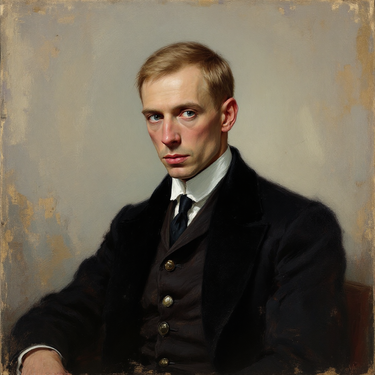Sergei Rachmaninoff: The Last Romantic Virtuoso
Introduction to Sergei Rachmaninoff
Sergei Rachmaninoff (1873–1943) was a Russian composer, pianist, and conductor, renowned for his lush harmonies, sweeping melodies, and virtuosic piano writing. As one of the last great figures of Romanticism, his music bridges the grandeur of the 19th century with the evolving styles of the 20th century. Rachmaninoff’s compositions are known for their deep emotional intensity, technical brilliance, and orchestral richness, making him one of the most beloved and frequently performed composers in the classical world.
Rachmaninoff’s Most Celebrated Works
Piano Concertos: Grand and Expressive
Rachmaninoff’s piano concertos are among the most demanding and beloved in the repertoire:
- Piano Concerto No. 2 in C minor (1901) – A masterpiece of Romantic expression, featuring soaring melodies and dramatic intensity.
- Piano Concerto No. 3 in D minor (1909) – A legendary concerto known for its technical difficulty and emotional depth, famously championed by pianists like Vladimir Horowitz.
- Piano Concerto No. 1 (1891, revised 1917) & No. 4 (1926, revised 1941) – Displaying Rachmaninoff’s evolving style and harmonic ingenuity.
Orchestral Masterpieces
Rachmaninoff’s orchestral works are rich in lyricism, drama, and symphonic grandeur:
- Rhapsody on a Theme of Paganini (1934) – A dazzling set of variations on Paganini’s famous theme, featuring the stunning "18th Variation."
- Symphony No. 2 in E minor (1907) – A lush and expansive symphony, overflowing with Romantic beauty.
- The Isle of the Dead (1908, symphonic poem) – A dark and evocative orchestral piece inspired by Arnold Böcklin’s painting.
Piano Works: Virtuosity and Emotion
Rachmaninoff was one of the greatest pianists in history, and his solo piano works reflect his extraordinary skill:
- Prelude in C-sharp minor (1892, Op. 3, No. 2) – One of his most famous piano pieces, instantly recognizable.
- Études-Tableaux (1911, 1917) – Highly expressive and technically challenging études.
- Piano Sonatas No. 1 (1907) & No. 2 (1913, revised 1931) – Grand and deeply introspective works.
Vocal and Choral Works
Rachmaninoff also composed breathtaking vocal music:
- Vespers (All-Night Vigil, 1915) – A choral masterpiece showcasing his deep connection to Russian Orthodox music.
- Vocalise (1915) – A hauntingly beautiful song, often performed in instrumental arrangements.
Rachmaninoff’s Enduring Legacy
Rachmaninoff’s music continues to captivate audiences with its rich textures, emotional depth, and breathtaking virtuosity. His ability to evoke nostalgia, passion, and grandeur ensures that his works remain favorites among pianists, orchestras, and listeners worldwide.























